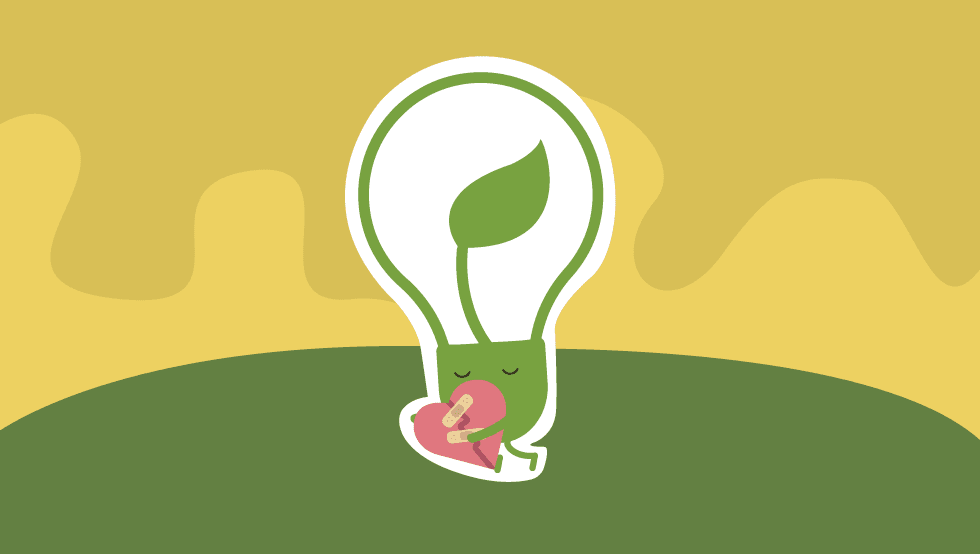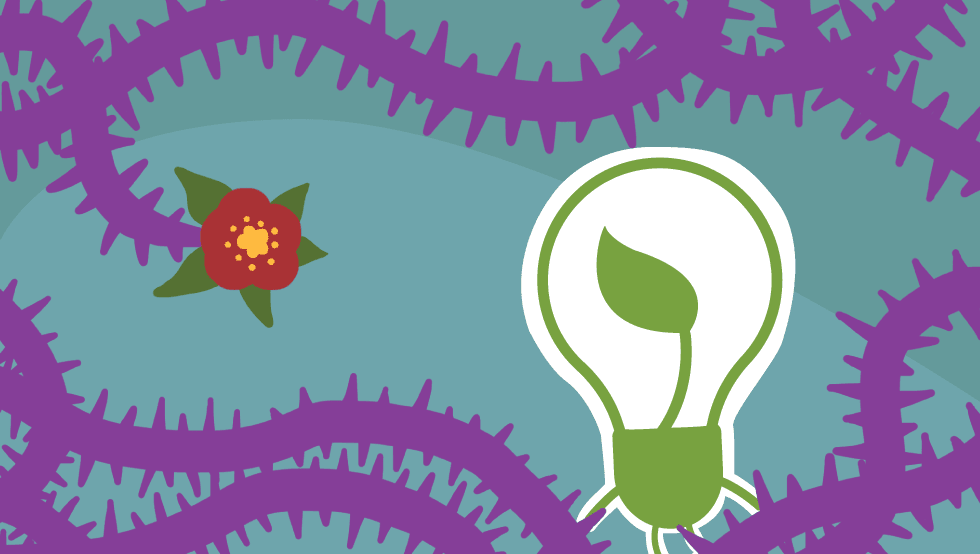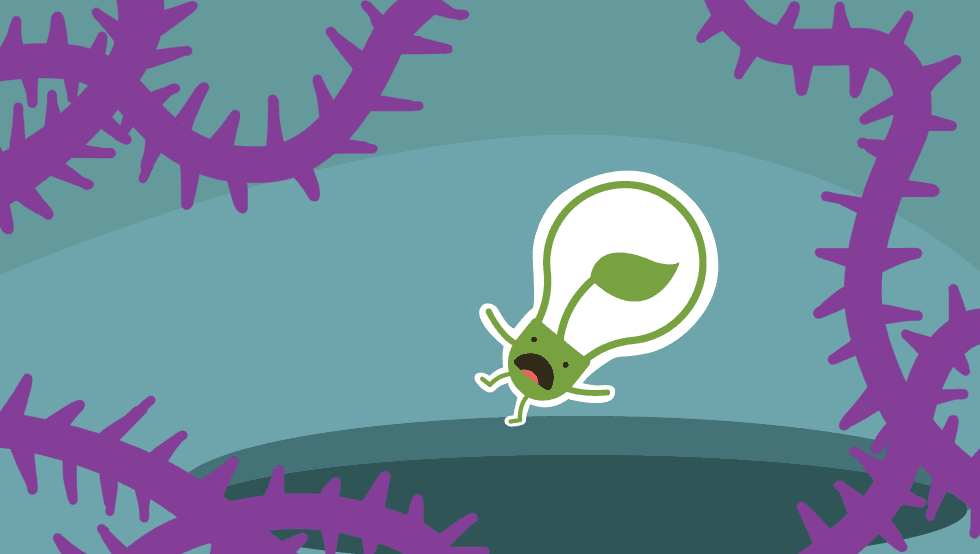TLDR: Once you fall in love with suffering, you won’t have to suffer anymore. Here is why and how to go about doing it.
What? Have I read the title wrongly? Fall in love with my suffering? Why would I ever want to do that? Well, to begin with, we have misjudged and misunderstood suffering.
Recently, I was invited by the Singapore Buddhist Mission to speak on How Buddhism has transformed my life? Throughout the 45 mins, I noticed most of what I talked about was how I overcame my sufferings.
Sufferings come in many forms.
“Lucky” for me, I’ve experienced many from the grief of losing my father, the guilt of not seeing my father for a year before he passed away due to my medical condition, go the physical and mental pain of my cancer treatments, I could go on and on, but that would make this article too depressing. So, why don’t I turn my sufferings around?
Suffering does not discriminate
If you take a closer look, suffering is an inevitability in life. I have not heard of anyone who has not suffered, whether it is physical or mental, we all suffer. It is bound to happen, and I’ve not heard of anyone immune to it as well.
All existence is Dukkha. According to the first noble truth in Buddhism, there is dukkha, often translated as suffering (though a sense of dissatisfaction is a closer meaning).
When I first came across the word dukkha, I didn’t pay much attention to it.
I simply thought it’s true, and it makes sense, but I didn’t heed the advice as a warning. I mean, I have had my fair share of sufferings, and I dealt with them promptly. But I neglected to pay attention to the second noble truth, which said that our constant wanting and resisting causes suffering.
What I failed to understand is my resistance to suffering when I’ve been warned. Can accepting the fact that bad things do happen in life reduce suffering? Apparently, it does.
It’s ok to not be ok.

Acceptance does not mean you are ok with it. But by reacting against the pain—resisting or rejecting it—we create unnecessary suffering. It doesn’t mean that you’ve chosen or agreed with what has happened to you.
It doesn’t mean you like panic attacks, the side effects of cancer treatments, or suffering an injustice that has happened to you or someone else.
Rather, you’re choosing to allow it to be there when you can’t change it at that moment. To make space for it. To give yourself the patience to understand what’s going on, feel what you feel, or have experienced what you’ve experienced without creating unproductive anger or anxiety.
The pain might still be there, but some of the “by-products” of the suffering will be alleviated.
Sufferings are to be embraced.
One of my strengths, or I personally like to think of as a strength, is I have the ability to go deep into my experiences and examine what is truly happening to me. My life experiences are like a school; I attend to each experience like a student in the class, waiting to see what is going on and what I can learn from it.
What I have learnt is that I haven’t become stronger after much suffering. I just feel more exhausted and weak, but I also feel more resilient towards suffering.
It’s like if I embrace every suffering, wouldn’t I get better at dealing with the unavoidable? Wouldn’t it make sense to embrace it rather than detest it?
Whenever I face any bad situation or problem that happens to me willingly and enthusiastically, it eases me into making better decisions. I feel less stressed out in dealing with it.
Suffering can be a valuable teaching.
Most of the time, we misinterpret suffering, thinking it comes from the world or the people around us. But it’s impossible for the world to cause you suffering if you don’t allow it. Also, suffering is a good thing, a kind of nourishment.
In order to be happy, you have to first find the meaning of happiness, and suffering becomes a catalyst for you to define it. It’s like using the dictionary – in order to understand happiness; you need to read up the definition of the word.
You can treat suffering as nourishment, a kind of tonic for your life that activates your willpower and allows you to discover your own strength and clarify your doubts.
For instance, the side effects I suffered from cancer treatment reminded me to stop procrastinating and postponing the things I really wanted to do. It also helped me focus on the present and discover the meaning of life.
Pain is certain, but suffering is optional.
External forces have always caused us much suffering. Although they can trigger our negative emotions, we forget that peace in the heart is also there. Our lack of awareness might be the cause of many of our sufferings, but it’s not like we can’t do anything about it.
We might not be able to control what has happened to us, but we can choose how we respond to it. So, my point here is that no matter how horrible a situation may seem, we can still stay focused in the present moment.
Being in the present moment helps us to become aware of our peaceful mental state within. We shouldn’t let bad situations rattle us into a corner and face defeat, thinking there is no way out of it.
A bad situation could be an opportunity for something good.

Sometimes, things aren’t as bad as we think they are. It just so happens that we’re conditioned by society to get what we want, and if we don’t get it, we automatically feel disheartened or disappointed.
Bad things in life can also be a stepping stone towards good things that may happen in the future.
I remember desperately wanting to secure a job which I was rejected. But that allowed me to apply and secure another job opportunity that was far greater and better than what I had expected.
Suffering doesn’t belong to anyone.

Suffering is only as bad as you want it to be. If I remove “me” from my problem, it will just be a problem and not “my problem.” Suffering no longer becomes personal; the problem is as it is.
There are no good or bad experiences. An experience is an experience if you see it for what it really is. It only becomes good or bad when we judge it.
If I know something will be bad for me, it will be bad for me. I choose to suffer; then I suffer. It all depends on how we look at things.
When we stop owning our sufferings with our egos, our sufferings will end. In Buddhism, phenomena are characterised by impermanence, no-self and dissatisfaction (dukkha). Suffering as taught by the Buddha, only occurs when there is an “I” (Self-identity), “Me” (Self-ownership), and “Mine” (feeling of a Self) due to our erroneous belief.
No-Self, or anatta is the hardest to comprehend because it is a deep-seated belief that we own our thoughts, feelings and body when in fact we are more a slave than a master to these impermanent phenomena.
We tend to attach ourselves to problems due to our egos. As a result, we make suffering a problem, my problem.
Every suffering will be worth it.
Suffering can be valuable if we can understand the underlying truth that suffering is the gateway to enlightenment. Although it does not mean we pursue suffering, it can help open the door to awakening if we become aware of it.
Pigs can eat rotten food and still find it delicious. Lotus cannot grow without the mud, and enlightenment cannot be attained without becoming aware of the causes of suffering.
Only when we are aware, can we change suffering.
Wise steps:
- By accepting that sufferings are inevitable and can’t be avoided, we can learn to embrace them as a catalyst for happiness.
- Treat sufferings for what they are; they don’t belong to you or anyone.
- Not every suffering is bad; we can choose to look at it differently and turn it into an opportunity leading to something better.
- Sufferings are worth having only if they lead us to our own awakening.


